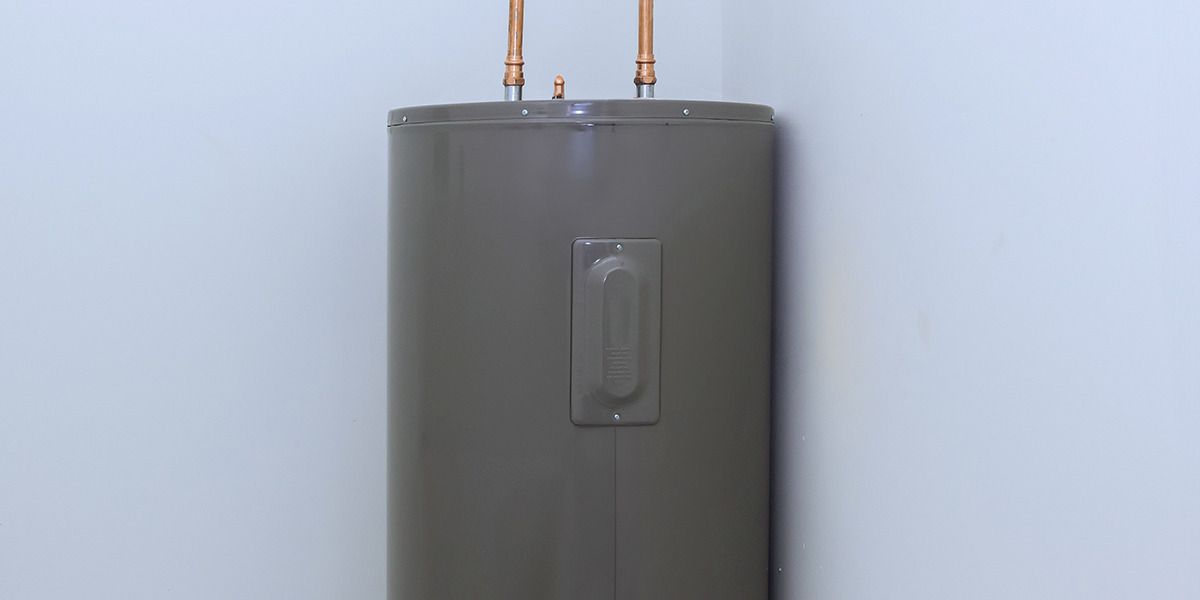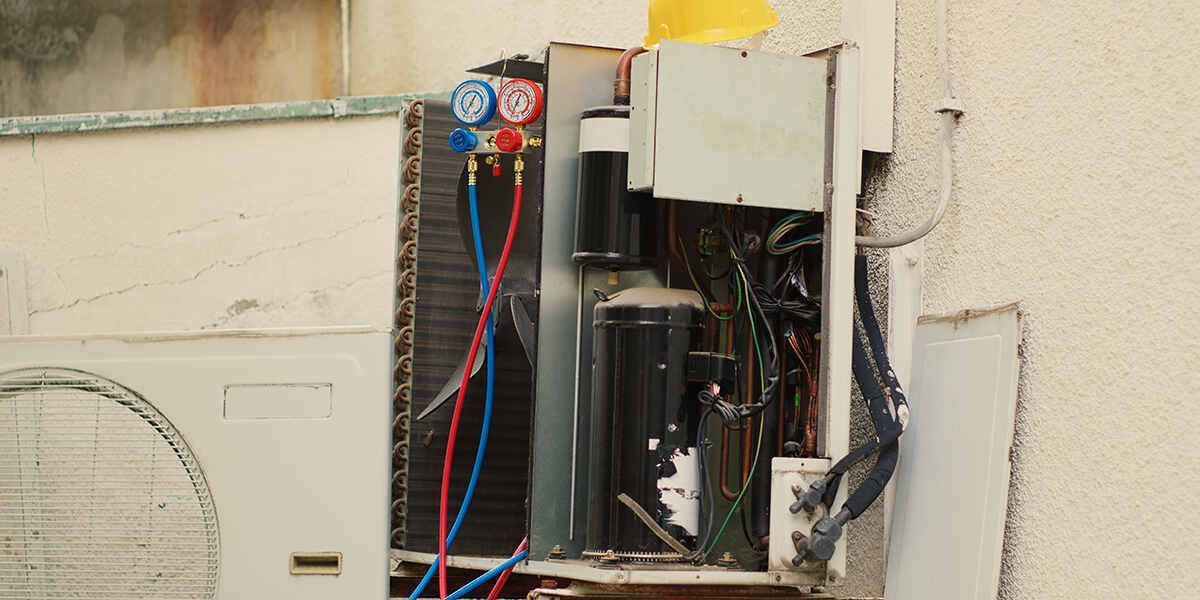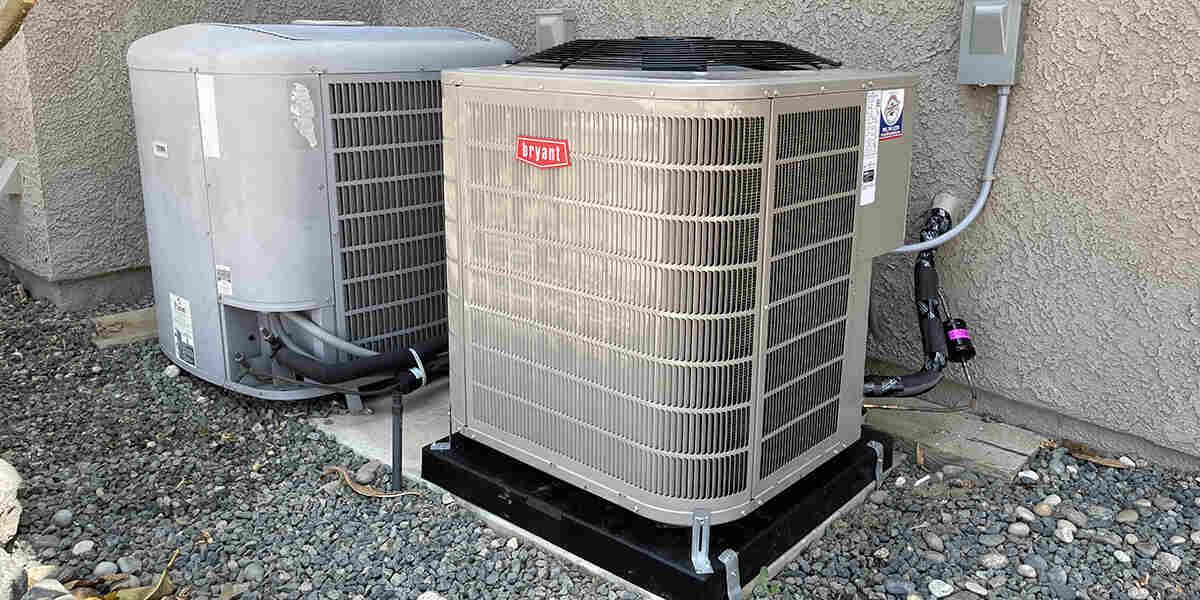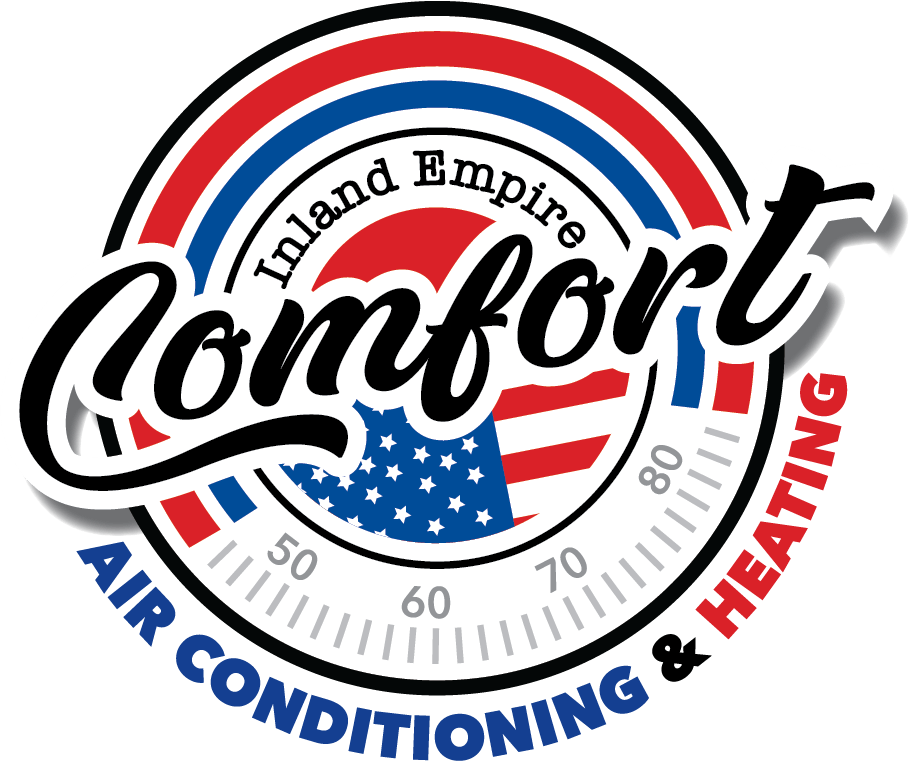Elevating AC Unit: Reasons and Best Practices
Whether you are installing a new outdoor air conditioner unit or looking to make your current unit safer and more efficient, the question of elevating your AC unit is an important one. As air conditioning installation specialists in Corona, CA, Inland Empire Comfort Air Conditioning & Heating, understand why elevating the AC unit is helpful and necessary.
Our skilled technicians can evaluate your AC unit’s specific requirements and determine the best spot to mount your AC condenser to ensure it runs more efficiently, from weather conditions to mechanics to airflow improvement.
Read on to learn more about elevating an AC unit, the best practices for doing so, and how Inland Empire Comfort Air Conditioning & Heating can help.
Reasons to Elevate Your AC Unit
There are several reasons why elevating the AC unit is wise and necessary.
Keep the AC Unit Level
Keeping your AC unit level is the primary reason why elevating the AC unit, either with brackets or a concrete pad, is recommended.
AC condenser units are heavy; some window units can weigh as much as 200 pounds. They can easily sink into the ground under their own weight. Since the copper tubing is usually on the side of the AC, it will sink unevenly and cause a host of other problems within the unit.
An AC unit that isn’t level won’t be able to function at its full effectiveness, and can even stop working altogether. It’s crucial to keep your unit oriented correctly, for a few reasons:
Oil
The oil inside the condensing unit “escapes” from the compressor and mixes with the refrigerant moving through the lines. As long as the AC unit is level, the oil will flow back to the compressor and to where it is needed. If the unit isn’t level, the oil could separate from the refrigerant.
When the oils separate from the refrigerant, they can pool in the coils and lines of the unit, leading to a shortage of oil in the compressor. Lack of oil in the compressor leads to damage and overheating and a decrease in system efficiency.
Water
Oil is not the only fluid that can cause problems in your air conditioner when it is not level. If the unit is tilted, and that tilt is enough to affect the drain pan, water may pool in the pan instead of draining out through the drain line.
Pooled water increases the humidity in your AC unit, leading to mold growth and rust, as well as coil damage and costly repairs.
Vibration
Since a motor powers your air conditioning unit, there is bound to be some vibration when it is running. However, if the unit is on an uneven surface, that vibration can become extreme. Too much vibration can severely affect the unit, shaking refrigerant lines loose and ultimately shortening the life of the AC unit.
Vibration can also increase sinkage, where the ground beneath the AC unit gives way and the unit begins to sink. Sinkage can cause damage to the unit during the sinking and pull connectors and refrigerant lines right out of the building.
Better Air Circulation
Raising the condenser off the ground allows cool air to flow through the fins along the sides. This helps keep the condenser coils cool and channel the heat through the upper fan. This is extremely important for the proper function of the unit.
Since the coolant cannot release the heat, the air will not be the right temperature for compression and movement through into the indoor portion of the AC unit. For the best airflow, ensure that your AC unit installation is on the side of your home where the airflow is most robust.
Make Lawn Maintenance Easier
Elevating the AC unit can make regular lawn maintenance much more accessible. When the air condenser is on the ground, it makes lawn mowing and edging challenging, especially with weed trimmers and other power lawn equipment. The condenser coil fins and refrigerant lines are highly vulnerable to damage.
Protection from Flooding
Outdoor air conditioning units can typically withstand various weather conditions, including water. However, standing in water for extended periods is harmful to an AC unit. Standing water can clog up drainage holes and allow water to stand inside the cabinet. The longer the system's interior is wet, the higher the risk of corrosion of expensive internal parts.
Keep the AC Unit Away from Critters
Damage caused by animals, specifically animal urine, can corrode the exterior of your condenser unit. Even the condenser coils are vulnerable to the effects of animal visitors.
In addition, wild animals may choose to crawl under the AC, holing up for the winter months in small holes dug under the AC unit. Some rodents and other pests can crawl up inside the condenser and build nests for resting. They may eventually chew on wires, leaving expensive damage behind.
How to Elevate Your AC Unit
The AC portion of an HVAC system often rests on a concrete slab, but ground-level platforms do a poor job protecting your AC unit from dust, dirt, and debris.
Bracket mounts are an easy way to raise the unit off the ground. Brackets are easy to install, and even the heaviest air conditioning units are mountable on the side of the home. A professional heating and cooling service technician from Inland Empire Comfort Air Conditioning & Heating can assist you with the entire process, attaching the unit with brackets and evaluating it for performance.
Air Conditioning Installation in Corona, CA
Inland Empire Comfort Air Conditioning & Heating is the premier HVAC contractor in Corona, specializing in installing, replacing, and repairing heating and air conditioning systems. From complete system installs to seasonal maintenance and emergency repairs, we are ready to put your safety and comfort first, delivering quality service and dependable results.
If you would like to
learn how to avoid improper HVAC installation
or about the many services that Inland Empire Comfort Air Conditioning & Heating offers, including elevating an AC unit, call us today at
951-789-3238 for more information or book a consultation and estimate.
You might also like
Inland Empire Comfort
Book a Service Today
We will get back to you as soon as possible
Please try again later
Location
19071 Newsome Rd Riverside, CA 92508
NAVIGATION LINKS
All Rights Reserved | Inland Empire Comfort



